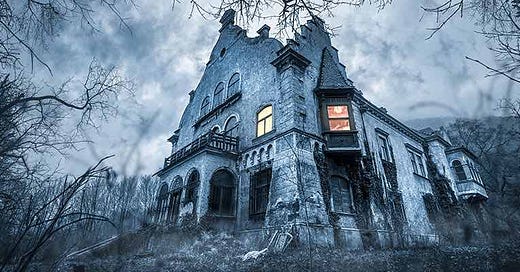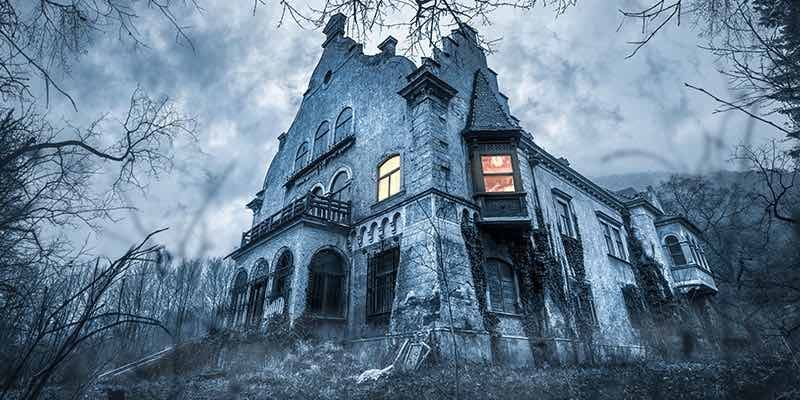Do one thing every day that scares you: good vs bad fear
It's not clear who first said "Do one thing every day that scares you". The Internet would have you believe it was Eleanor Roosevelt, however, there's no supporting evidence. As with "an apple a day keeps the doctor away", the general sentiment of doing one thing every day that scares you is a good one. But it's worth defining what "scares" means. The thought of jumping off a ten-storey building is scary but isn't an advisable thing to do. There's clearly good and bad fear. There's good fear that keeps you alive and there's bad fear that stops you from living your life.
Emotions
There are between 9 and 12 core emotions according to discrete emotion theory. One of those emotions being fear. Within this core emotion, there are eight types with varying degrees of intensity according to an article published on Simply Psychology. The eight types of fear (starting from least to most intense) are trepidation, nervousness, anxiety, dread, desperation, panic, horror, & terror.
Clearly, we don't want to fill our lives with terror, panic, and anxiety, however, a certain amount of trepidation and nervousness can be good as it normally precedes something we're not used to doing. It means we're changing our routine and leaving our comfort zone.
The good thing about this type of fear is it vanishes after we've done the thing we were nervous about and it's replaced with a positive sense of achievement. This is very different from how lingering anxiety behaves caused by a stressful job, depression, social/news media, or an unhappy relationship. This is arguably the worst type of fear to have in our life.
Living in fear
I work with someone who hasn't left her home since the covid pandemic began. She's always been risk averse and somewhat of a germaphobe, and the pandemic (but more aptly, the news media) sent her into panic-overdrive. She's now suffering from various ailments that are preventing her from going outside, how many of these are psychological or not, I couldn't say.
Doing one thing every day that scares you and living in fear are two very different things. Steven Pinker and Hans Rosling both wrote books about how we are living in the safest time in human history. The likelihood of dying at birth, in an accident, of disease, or from war has plummeted. This means we live nearly twice as long compared to only 100 years ago.
There was reason to be worried about dying from tuberculosis or many other incurable diseases if you were born just a few generations ago. In comparison, today, the current global panic is around energy prices and not being able to switch the heating on. For those with more money, the biggest worry is their stock portfolio, interest rates, or home going down in value.
In comparative terms, it's absurd how much easier life has become. People of the past aren't the only ones we should make comparisons with -- the chances are you don't live in one of the most dangerous countries in the world many of which are mired in war and terrorism, however, hundreds of millions do.
The Channel 4 documentary series Inside the Real Narcos interviews many characters like "Pepe" (not his real name). Pepe works as a cartel hitman in Columbia. He lives in constant fear and tells the interviewer "I don't sleep well" which is evident from his murky, bloodshot eyes. The last person he was ordered to kill was a woman who was slow in paying money she owed.
It's evident Pepe doesn't want to be killing people for a living, "it makes me cry" he says. But if you want to feed your family there are few opportunities for making money, and changing job isn't an option. If Pepe was to leave the cartel, he'd be a "traitor" and he "would lose" (a euphemism used by Pepe for being murdered).
Pepe's story is that of a man stuck in a living hell. Kill or be killed. It's people like Pepe we should compare ourselves to, and know how lucky we are instead of fictional social media characters that make us feel inferior.
Good fear vs bad fear
I enjoy reading about extreme examples of what we're capable of. It puts fear into perspective. If there's anything I'm nervous about, it seems stupid after reading about a soldier caught in a firefight, or stories from combat engineers whose job it is to find unexploded IEDs.
If you're fighting on a battlefield then there's good reason to be fearful -- a certain amount of (good) fear can make you cautious which keeps you alive. Most of us have never, and will never experience such life-threatening situations. Instead, most of us have abstract fears, like climate change, crime, or the economy. It's the worst type of fear to have because you can't do anything about it, and worse still, it doesn't go away. It's what I would classify as bad fear.
The media fill our lives with bad fear. It degrades our mood, and negatively alters our behaviour. We should try and eliminate this type of fear, and replace it with good fear. The type of fear that comes from personal development.
Near death experience
What's the closest you've come to dying?
Most of us can think about a time when we averted danger in a risky situation. Maybe it was crossing the road and you weren't looking, or when you were driving and had a near miss. For a split second or two, there was a rush of fear. Here's the thing though, almost as quickly as that injection of terror came into your system it disappeared. There's no remanence of lingering stress for the rest of the day, you quickly went back to normal. This is good fear and we've experienced fear for most of human existence.
We're hardwired to be afraid of situations that are happening here and now. Our bodies pump us with adrenaline and cortisol to make us alert and energetic to escape that sabre-toothed tiger. For most of human existence, fear has been a useful emotion to help with actual situations. A lot changed in the 15th century thanks to Johannes Gutenberg and the invention of the printing press.
Word of mouth was the primary news source before print. I sometimes wonder, what a great experience that must have been. Needless to say, there would have been a lot of nonsense and gossip being spread verbally, but we would have been significantly less brainwashed compared to the media-addicted junkies we are today.
It didn't take long for the print media to realise that fear increased profit and it has perpetuated ever since. From Gutenberg to Zukerberg, the media in all its shapes and forms fill our minds with abstract fearful information. We're not wired to handle this and we're left with low-level anxiety from thinking there's terror hiding behind every corner.
Generation fear
In the book The Fear Bubble, Ant Middleton writes how overprotective parenting and the media is creating a fearful generation. For those of us that escaped an overprotective childhood, we still have a panic-mongering society to contend with. Mollycoddling has become part of our culture, even my iPhone weather app is frequently warning me of "severe" weather conditions, but when I look out the window, I think really?
We live in a world where we're being convinced that everything is extreme. Every situation at work is "urgent". Every breaking news alert is about another "crisis". The English dictionary needs new words to describe situations that are literally urgent and severe as we've become accustomed to everything and everyone being in a state of constant emergency.
The best way the English language can accommodate this is by prepending "really". But even that doesn't work as now everyone has "really urgent" requests and the media talks about "really explosive" events. In a digital world where it's easy to test content, media outlets know through experimentation that more extreme content equals more ad revenue.
[The Fear Bubble by Ant Middleton]
For the first decade and a half of our existence on earth, we’re in the care of usually well-meaning parents or teachers. In the modern age, the number one priority of these caregivers is to keep the infants in their care safe from harm. So what do they tell them? ‘Be careful.’ Endlessly. Over and over and over again, in different variations. Don’t do this, don’t go there, don’t touch that, stay away from him, leave that alone, make sure you do this, be careful, be careful, be very, very careful. And for sixteen or more years, that information is pouring into the easily influenced young brain from all directions. Parents and teachers exaggerate the dangers of the world out of a sense of misguided love. And what do children do?
They believe their parents and teachers. Of course they do. To a child, Mum and Dad are nothing less than gods. As we’re growing up and learning about the world, we’re constantly being bombarded with signals not only that reality is full of threats and enemies, but that we’re powerless in the face of them and have to be on our continual guard. When we grow into our teenage years and beyond, we’re immersed in media that continue to convince us that all this fearful propaganda is true.
In order to reap their profits, everything from Hollywood to TV to the newspapers has to spew out endless tales of terror and horror, whether they’re of street crime or health crises or terrorism or tornadoes or earthquakes or political instability or war. Never mind that we spend the vast, vast majority of our days in a state of absolute security and safety, taking our kids to school, picking up groceries from the shops, playing in the park on Sunday afternoons.
Despite the overwhelming evidence of our safety, the message never ceases that the world is a highly hazardous place and we’re no match for it. We fail to realise that this message is false because it’s all-pervasive. It utterly surrounds us, literally from the moment we’re born. Be careful! But it’s incredibly damaging. It helps to form our underlying perspective on the world. Our default mindset becomes one of deep fear, and that fear stops us living the lives we’re truly capable of.
[/ The Fear Bubble by Ant Middleton]
In all of human history, we have never consumed the amount of media that we do today. In the beginning, we only consumed media, now we consume it, and create it. The next phase (if Zuckerberg has his way) is for us to consume it, create it, and become part of it in the Metaverse.
It's fair to say that most of us realise that we're being duped by the media, we know why they focus on sensationalism. But we're still allured by the clickbait. Considering the number of negative media forces we have to contend with today, I would say that we're better off doing fewer things that scare us, by not clicking on terrifying news headlines, or pressing play on YouTube. Instead, I would advocate for doing things (often) that make us nervous. Being nervous normally precedes an event that will pass, and once it has we feel accomplished. On the flip side, the more media we consume, the less we want to do with our lives -- which is a genuine reason to be terrified.




